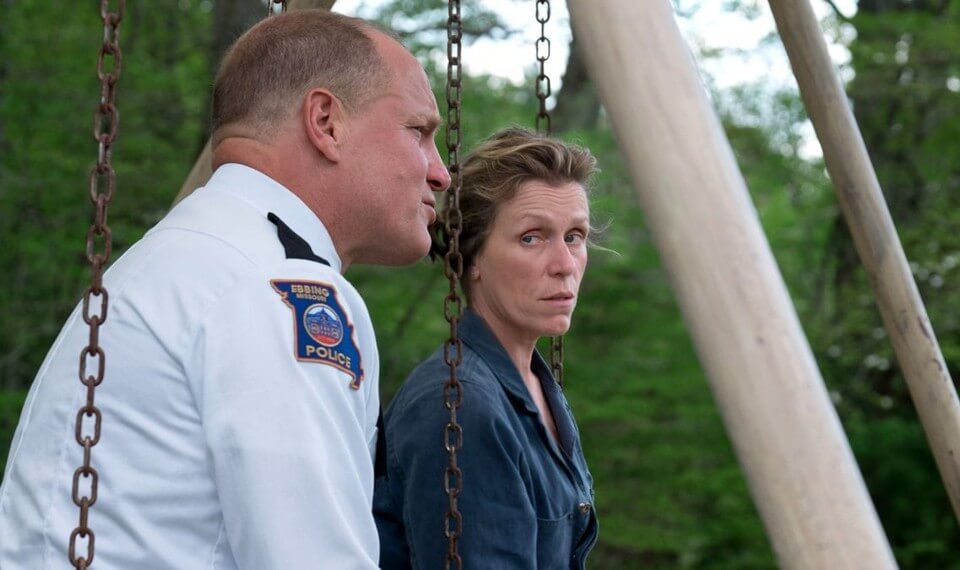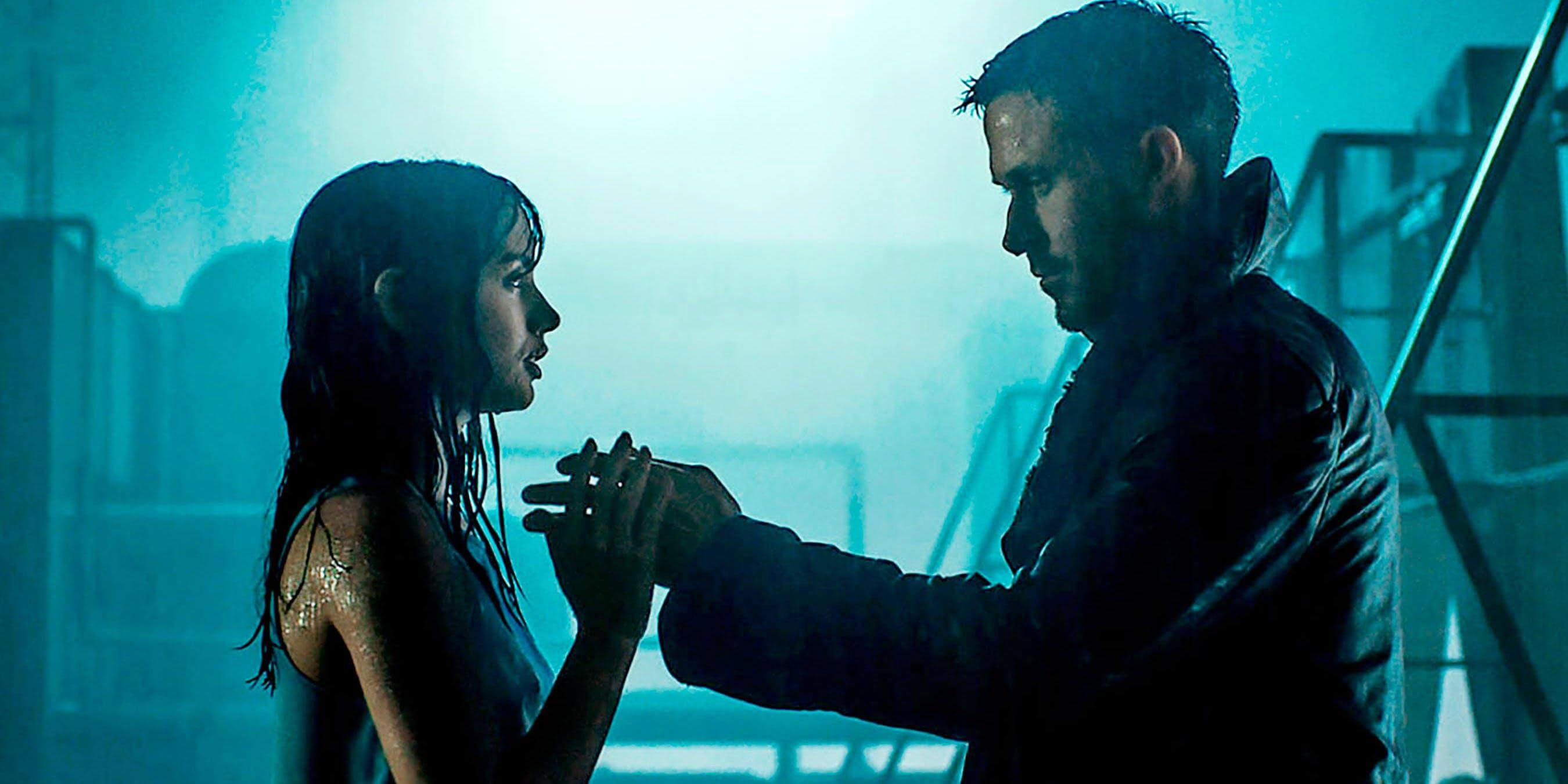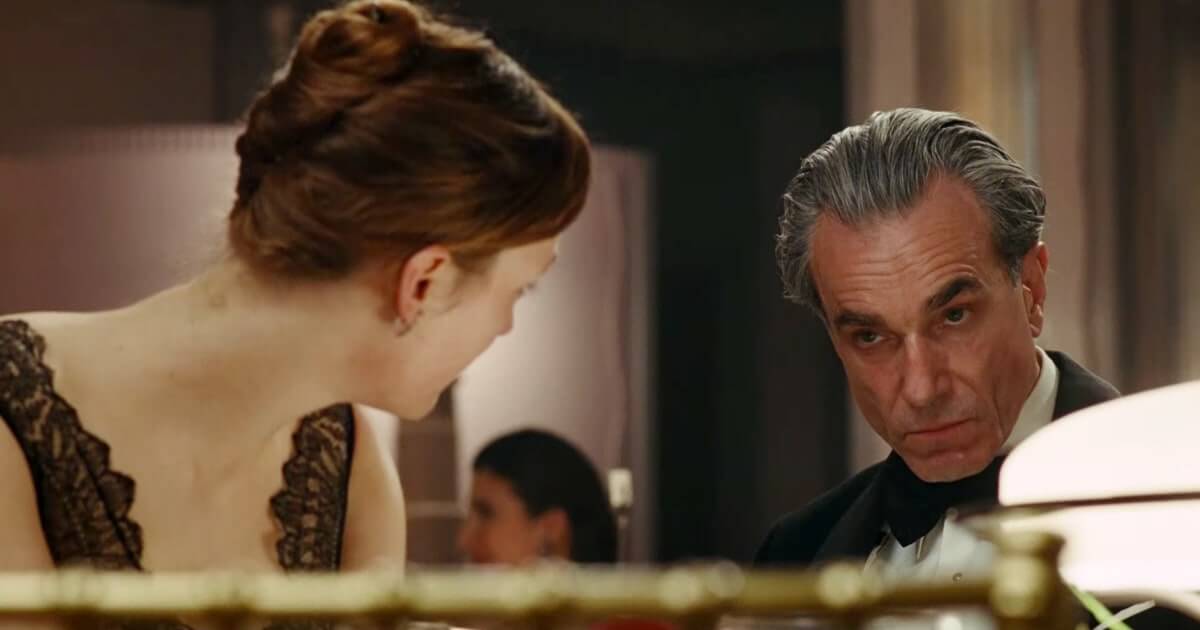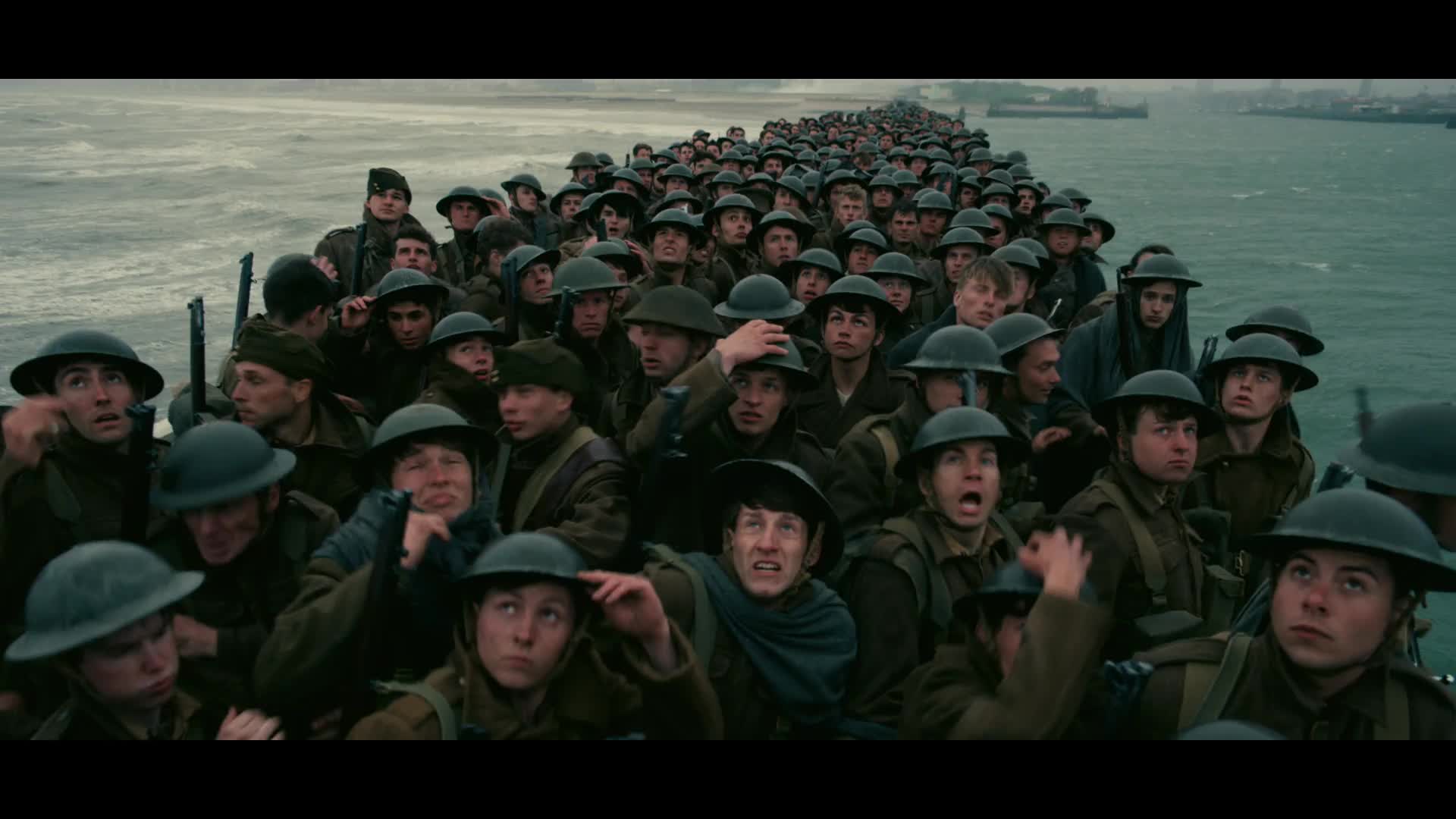Foreign Film, Screenplay & Technical Awards Odds for 2018 Oscars

With the Golden Globes in the rear-view mirror, all eyes are fixed upon the crown jewel of red-carpet extravaganzas: the 2018 Oscars. On March 4th, every significant player in Hollywood will gather at the Dolby Theatre at the behest of the Academy of Motion Picture Arts and Sciences to celebrate the most significant cinematic achievements of the year gone by.
The so-called “major categories,” like Best Picture and Best Director, get most of the attention. But the less-central awards, the ones on which victory is likely decided on the merits of their technical precision and artistry instead of name-recognition, hype, and marketing campaigns, deserve attention. They might not have the same clout in the media, but they represent massive cinematic achievements nonetheless. Let’s rescue them from obscurity with thoughtful analysis, odds, and predictions.
Best Foreign Film

In what is probably the most notable of the smaller awards, Best Foreign Film is awarded to the “feature-length motion picture produced outside the United States of America with a predominantly non-English dialogue track.” While In The Fade, a revenge epic set in the fraught political context of Angela Merkel’s Germany, captured the Golden Globe, it was ultimately snubbed in the race for the Oscar. The film has its moments, and is buoyed by Diane Kruger putting on the performance of her career, but it ultimately degenerates from an intelligent commentary on the ethics and attitudes of the European refugee crisis into a muddled, prosaic action thriller that has more parallels to Death Wish V than traditional Oscar fare.
After winning the Palme d’Or and sweeping most major European awards, Ruben Östlund’s The Square is regarded by many domestic critics as the best overall film of the year, not just the best international film. A scathing satire of not only the art-world but the gilded upper crust of Western society at large, The Square is a safe bet to win Best Foreign Film.
That being said, it wouldn’t be a shock to see Loveless or A Fantastic Woman capture the award; both are topical, relevant, well-executed works that represent their countries of origin admirably. Loveless is a brilliant meditation on the state of post-Soviet Russia, while A Fantastic Woman is receiving heaps of praise for trans actress Daniela Vega’s brilliant acting.
- The Square (Sweden): 3/2
- A Fantastic Woman (Chile): 3/1
- Loveless (Russia): 3/1
- The Insult (Lebanon): 9/1
- On Body and Soul (Hungary): 9/1
Best Adapted Screenplay

Nearly every single film nominated for Best Picture this year has an original screenplay; Call Me By Your Name is the notable exception, and should also be considered the undisputed favorite for this award. James Ivory’s screenplay, based on André Aciman novel of the name, is a simple yet highly sophisticated love story between a teenager and a 24-year-old graduate student, set in the bucolic countryside of Tuscany.
The biggest achievement of the screenplay lies in its relatability, as all demographics have embraced Call Me By Your Name; this didn’t happen by accident. Ivory specifically engineered the script to reach a broader audience, altering perspective, pushing back time, and redacting significant events in the book that would have limited its scope. In many respects, both the commercial and artistic success of Call Me By Your Name is due to Ivory’s masterful translation of the novel into something workable on the silver screen.
Never count out Hollywood’s love affair with Aaron Sorkin’s mordant scripts, of course, so Molly’s Game should be considered another strong candidate. The story of an intelligent, competitive woman ascending in a world traditionally dominated by males is highly relevant, given the fact that the #metoo movement is likely to be the central theme of this year’s Oscars. The very meta Disaster Artist script got a nod as well, as Hollywood’s finest love nothing more than to celebrate themselves.
- Call Me By Your Name (James Ivory): 1/1
- Molly’s Game (Aaron Sorkin): 4/1
- Mudbound (Virgil Williams and Dee Rees): 17/3
- Disaster Artist (Scott Neustadter & Michael H. Weber): 97/3
- Logan (Scott Frank & James Mangold): 49/1
Best Original Screenplay

Martin McDonagh’s Three Billboards Outside Ebbing, Missouri is the favorite to take home the Oscar for Best Original Screenplay. After losing to Milk in 2009 (when he should have won for his brilliant In Bruges script), McDonagh is tough to bet against, especially after already nabbing the Golden Globe. Filled with snappy, caustic dialogue and fantastically rich characters, McDonough deals with the complexities of violence, redemption, grief, and reckoning with death in the context an intimately small American town. His script reveals the many intricacies of modern-day America, and McDonagh demonstrates a brilliant knack to extrapolate the general from the specific.
While not necessarily as strong a contender as Three Billboards, Greta Gerwig’s coming of age tale Ladybird can’t be ignored. Having worked with Noah Baumbach before on Mistress America and Frances Ha, Gerwig is no stranger to crafting a precise, literary-style script that deals with ambiguity and impenetrably idiosyncratic behavior. Her script has been lauded for being just as good to read as it was to watch, high praise for the intrepid young writer and filmmaker.
Get Out also can’t be left out of the conversation, as Jordan Peele’s script cleverly foregrounds some of the societal undertones of a “post-racial” America, bringing the subtext of an ostensibly progressive American society to the surface. Peele, whose background is largely in comedy, writes an innovative script that masterfully builds on the cliches of the horror genre. Intricately layered and boundlessly clever, Get Out might even make Kubrick’s ghost smile.
- Three Billboards Outside Ebbing, Missouri (Martin McDonagh): 11/9
- Lady Bird (Greta Gerwig): 3/2
- Get Out (Jordan Peele): 9/1
- The Shape of Water (Guillermo Del Toro and Vanessa Taylor): 97/3
- The Big Sick ( Emily V. Gordon and Kumail Nanjiani): 49/1
Best Cinematography

The Oscar for Cinematography – awarded to the Director of Photography demonstrating a deft blend of creativity, attention to detail, and technological prevision – will almost certainly be granted to Roger Deakins for his work on Blade Runner 2049. Deakins has already been nominated for the award 13 times without a single statue to his name, and Blade Runner 2049 is undoubtedly some of his finest work. Deakin’s signature naturalist aesthetic is the perfect complement to the expressionist, noir tone and pacing of the film, and his subtle ability to set the mood with color is unparalleled by any contemporary cinematographer. Deakins’ transposition of natural scenes (such as Beijing’s smog at dusk) onto the artificial, dystopian landscape of Blade Runner is sure to resonate with the Academy.
Plus, anyone who’s seen the Harrison Ford and Ryan Gosling fight will know that the construction of this scene alone should guarantee Deakins a statue.
Blade Runner 2049 might be the front-runner, but both The Shape of Water and Dunkirk are also visually commanding films. The Shape of Water is shot largely in the monochromatic greens/blues of the deep sea and feels both gothic and mystical, but Dan Lausten makes sure the film’s aesthetic stays true to Guillermo Del Toro’s signature warm and humanistic tone. The simplicity of The Shape of Water is in stark contrast to the maximalist aesthetic of the war epic Dunkirk, a film full of texture, color depth, and complex aerial shots. It was a brilliant year for cinematography, and Dunkirk and The Shape of Water would be considered frontrunners in any other year.
- Blade Runner 2049 (Roger Deakins): 3/2
- Dunkirk (Hoyte Van Hoytema): 7/3
- The Shape of Water (Dan Laustsen): 9/1
- Mudbound (Rachel Morrison): 9/1
- Darkest Hour (Bruno Delbonnel): 9/1
Best Costume Design

Hollywood, especially in the 21st century, is in the midst of a love affair with all things self-referential. A film about a (kind of) fictional fashion designer in the 1950s, in which the narrative revolves around the costume designs specifically created for the film? That should work. Combine that with Hollywood’s eternal love affair with period pieces and you’ve got a safe bet to take home the award for best costume design.
Plus, Paul Thomas Anderson (director) and Daniel Day-Lewis (lead actor) are both Hollywood darlings, so it’s a safe bet that Phantom Thread will nab the Oscar for Costume Design. After all, Day-Lewis chose all his outfits himself, picked the fabrics, and studied both pattern-making and cutting in depth. What could be more Hollywood than that?
- Phantom Thread (Mark Bridges): 9/11
- Beauty and the Beast (Jacqueline Durran): 17/3
- Darkest Hour (Jacqueline Durran): 22/3
- The Shape of Water (Luis Sequeira): 9/1
- Victoria and Abdul (Consolata Boyle): 23/2
Best Film Editing

With extensive experience as a sound editor before making the transition to picture editing, the two-time Oscar-nominated Lee Smith was integral in helping Christopher Nolan achieve his vision with Dunkirk. As Nolan often does in his films, Dunkirk eschews a linear sense of time for layered chronology. His film takes place on land, sea, and air, with corresponding timelines of a week, a day, and an hour.
Making this complicated timeline work, figuring out when tone and emotion should shift and when timelines should intersect was a tremendous challenge for Smith. For his mastery in keeping the film taut, exciting, and tense the whole way through, he will very likely be rewarded with an Oscar. Without Smith’s editing prowess, Dunkirk would not be the massive cinematic achievement that it is. It’s going to be easy for the Academy to hand the award to someone who had such an integral hand in the construction of the overall narrative of Dunkirk; his influence is even more palpable than ordinary Oscar winners in this category.
Dunkirk is unlikely to capture any major award, so it is a safe bet to capture some of the smaller, more technical awards. The gravity of Dunkirk can’t be fully felt or experienced without going into a theatre to see film, and this is something the Academy looks to reward.
- Dunkirk (Lee Smith): 11/9
- The Shape of Water (Sidney Wolinsky): 7/3
- Three Billboards Outside Ebbing, Missouri (John Gregory): 17/3
- I, Tonya (Tatiana S. Regel): 19/1
- Baby Driver (Paul Machliss and Jonathan Amos): 19/1
Best Original Score

The Oscar for Best Original Score will likely go to the most recognizable name in film scoring: Hans Zimmer. The super-composer extraordinaire will likely be handed a statue for Dunkirk’s score. The intensity of Dunkirk accelerates ad infinitum over its 1 hour and 52-minute run-time; its a truly immersive experience and Hans Zimmer’s score plays an essential role in its success. Employing the “Shepard Tone” acoustic technique, which creates the illusion that pitch is constantly going up, Zimmer’s score lends itself perfectly to Dunkirk’s overall tone and non-linear structure.
- Dunkirk (Hans Zimmer): 13/7
- The Shape of Water (Alexandre Desplat): 7/3
- Phantom Thread (Jonny Greenwood): 17/3
- Star Wars: The Last Jedi (John Williams): 23/2
- Three Billboards Outside Ebbing, Missouri (Carter Burwell): 49/1
Best Sound Editing

It’s a familiar refrain at this point, but can you guess what our pick for Best Sound Editing of the year might be? If you guessed Dunkirk, you’re right! When sound editing is done at its best, you don’t notice it at all, so it can be hard to discern what the “best” sound editing of the year is. The Dunkirk sound-editing team had an outsized role in this film; the myriad sounds of the ocean, airplanes, and war at large had to be mastered and seamlessly placed together. In a dialogue-sparse film that is dominated by sound and music, the riveting sounds of Dunkirk drive the movie. This, combined with the innovative techniques used to generate and master the sounds of the film, make it the frontrunner.
- Dunkirk (Richard King and Alex Gibson): 11/9
- Blade Runner 2049 (Mark Mangini and Theo Green): 7/3
- Star Wars: The Last Jedi (Matthew Wood and Ren Klyce): 9/1
- The Shape of Water (Nathan Robitaille): 9/1
- Wonder Woman (James R. Mather): 9/1
Best Visual Effects

Blade Runner 2049 took home the Visual Effects Society (VES) award this year, which has predicted 10 out of the last 15 Oscars. One of the most impressive features of Blade Runner is the hologram characters, and how they manage to seamlessly integrate themselves when positioned against their live-action human counterparts. It’s one of the first times in cinematic history that a hologram demonstrates real volume.
Despite the historical precedent of the VES award, don’t write off War for the Planet of the Apes or Dunkirk just yet. War for the Planet of the Apes imbues the CGI-generated apes with a lifelike quality to a whole new extent; it was a major accomplishment for Morris and company.
As always, Christopher Nolan preferred to ground his visual effects in the real, eschewing computer-generated effects whenever possible. Dunkirk’s awe-inspiring illustration of war, from dogfights to artillery explosions, is made all the more impressive by the fact that so much of it was orchestrated outside of the safe comfort of a visual effects studio.
- Blade Runner 2049 (John Nelson, Paul Lambert, Richard R. Hoover and Gerd Nefzer): 1/1
- War for the Planet of the Apes (Ben Morris, Mike Mulholland, Chris Corbould and Neal Scanlan): 3/2
- Guardians of The Galaxy Vol. 2 (Christopher Townsend, Guy Williams, Jonathan Fawkner and Dan Sudick): 97/3
- Star Wars: The Last Jedi (Ben Morris, Mike Mulholland, Chris Corbould, and Neal Scanlan): 97/3
- Kong: Skull Island (Stephen Rosenbaum, Jeff White, Scott Benza and Mike Meinardus): 97/3
Best Production Design
- The Shape of Water: 11/9
- Blade Runner 2049: 7/3
- Dunkirk: 17/3
- Darkest Hour: 19/1
- Beauty and the Beast: 19/1
Best Song
- Remember Me (Coco): 3/2
- This is Me (The Greatest Showman): 3/1
- The Mystery of Love (Call Me By Your Name): 17/3
- Stand Up For Something (Marshall): 19/1
- Mighty River (Mudbound): 19/1
Best Sound Mixing
- Dunkirk: 3/2
- Blade Runner 2049: 7/3
- The Shape of Water: 9/1
- Baby Driver: 22/3
- Star Wars: The Last Jedi: 23/2
Best Animated Short
- Dear Basketball: 3/2
- Lou: 3/1
- Negative Space: 17/3
- Revolting Rhymes: 19/1
- Garden Party: 19/1
Best Documentary Short
- Heroine: 11/9
- Edith+Eddie: 7/3
- Heaven Is A Traffic Jam On The 405: 17/3
- Knife Skills: 19/1
- Traffic Stop: 19/1
Best Live Action Short
- DeKalb Elementary: 3/2
- The Silent Child: 7/3
- Watu Wote / All of US: 9/1
- The Eleven O’Clock: 22/3
- My Nephew Emmet: 23/2
Undoubtedly, the Oscars will be a spectacle you won’t want to miss; they are a landmark event not just for film, but a highly significant reflection of the state of American culture. Hollywood, after all, has played a key part in manufacturing many of our dreams and imagination since the 1920s. But as the world around us changes, we can always look to the Oscars to help us figure out how and why.
In total, the Oscars are a set of 24 awards, awarded for both artistic and technical merit. Criticisms of the Academy and its process abound; artistic vision, cultural influence, and innovation are often rendered less importance than financially successful, crowd-pleasing films. Historical epics, biographies, romantic and family melodramas and movies that touch hot-button social issues are always overrepresented at the Oscars. Career achievement Oscars and “make-ups” for snubs are not altogether uncommon (we all remember Al Pacino in Scent of a Woman.) Politics matter in the Academy.
This isn’t to say that the Oscars don’t recognize films with nuance or depth, it’s just that there are always factors at work outside the awards themselves. The broader cultural context matters less for the technical and less heralded awards, but it’s never far removed from the conversation. When analyzing prospective winners, always be sure to approach your predictions considering both aesthetics and ideology.


